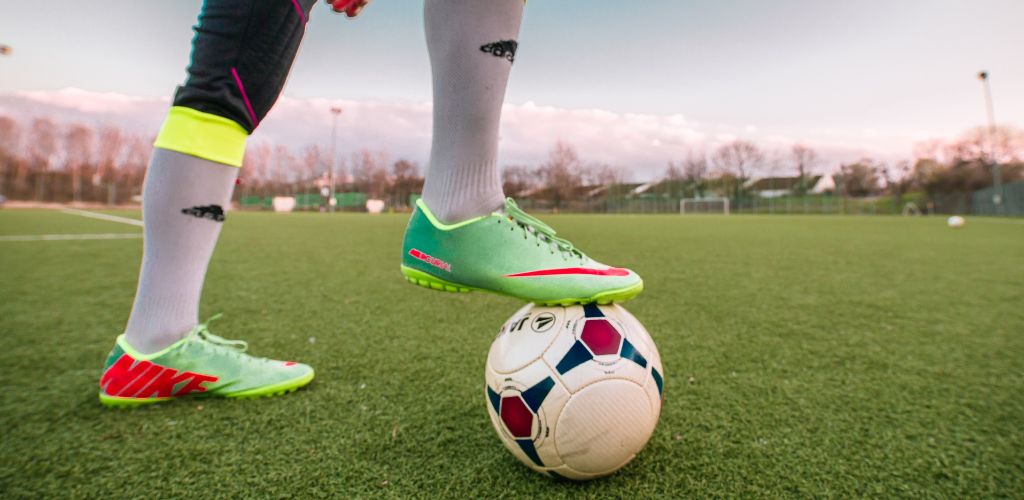World Cup 2022, Sport & Mediation

In recent weeks World Cup events have been dominating the sports channels, with fans across the world flying their country flags in support and pride of their teams at the opportunity to win the trophy World Cup.
This year the sport has been played in beautiful Qatar, which has a rich history of architecture and hospitality in the region. However, despite the luscious and luxurious surrounding the players and fans, there have been many concerns and issues between the players, fans, the sponsors, with the hosts. Issues have arisen such as the banning of alcohol being served in the stadiums to access to accommodation, LGBT rights and controversy over construction workers conditions and rights.
However, where there is sport emotions run high and there is the opportunity for sports disputes and litigation. In this article we will be focusing on the use of mediation in sports disputes.
Sports disputes can be resolved through arbitration and mediation, through the Court of Arbitration (“CAS”) independent and flexible dispute resolution is offered. The confidential process under the CAS Code through arbitration or mediation aims to resolve disputes specific to the needs of the sports world.
Who Are CAS?
The CAS was created in 1984, the International Council of Arbitration for Sport (ICAS) is the governing body for CAS. The ICAS has 20 members, serving a four year term.
The CAS undertakes around 300 cases around sports law disputes each year. CAS sets up non-permanent tribunals for the Olympic and Commonwealth games. Other major sporting events such as the World Cup can use the CAS Code and special procedural rules can be established for each occasion.
What type of dispute can be submitted to CAS?
Any type of dispute whether directly or indirectly linked to sport may be submitted to the CAS and can be referred to the CAS by any individual or legal entity.
Who can submit a dispute to CAS?
Disputes are often brought forward by athletes, clubs, sports federations, organisers of sports events and sponsors.
CAS Code
The CAS mediation rules (known as the CAS code) were amended in 2016 to enable a few updates to include other languages to be used, the official languages of CAS are English and French. The code was also updated to enable submissions by email to the CAS Court office in Lausanne, Switzerland and in limited situations where CAS arbitration awards have been made, they may be appealed pursuant to Swiss law and the Swiss Federal Tribunal.
The CAS mediation procedure is non binding and informal. It is based on an agreement to mediate between the parties and each party enters into the mediation in good faith to negotiate with the other party to settle the sports dispute.
The mediation procedure is mostly used for contractual matters, issues relating to doping, match fixing, and corruption are excluded from CAS mediation. However subject to certain circumstances the parties can expressly agree to submit the dispute to CAS mediation in such circumstances.
Appointment of mediators
Article 6 of the code provides that unless the parties have jointly selected a mediator from the list of CAS mediators, the mediator is appointed by the CAS president, from among the list of CAS mediators.
The mediator upon appointment has to devote sufficient time to the mediation preparation and proceedings, The mediator must also remain impartial and independent of the parties and must disclose any conflicting information that would question their independence to the parties and dispute.
Benefits of mediation in Sports Disputes
Sports contracts attract the attention of the media and fans due to the large sums being exchanged for the talented players between clubs and organisers of sports events can achieve. Some sport sectors, such as football (soccer) use contractual law to agree revenue sharing and lock out player agreements to employment disputes within the clubs and organisations, the stakes can be high for all involved.
Face to face negotiations tend to get heated and through the use of mediation also known as shuttle diplomacy issues between the parties can be settled through facilitated discussions, from positions to interest, people focus to problem focus and impasse to resolution.
Mediation offers privacy and confidentiality, and the ability to create a win-win agreement unlike arbitration where issues are decided by an arbitrator. The disputants have greater control over how discussions develop and unfold compared to litigation and arbitration.
Summary
The CAS code provides flexible and confidential procedure and process to resolve complex disputes involving sports law. The ability to submit commercial and disciplinary issues from around the world involving sports to CAS is unique. The Code enables parties to be able to use the mediation and arbitration procedures focused on the needs of the sports sector in a confidential, quick, and cost effective manner compared to other litigation procedures.
The collaborative and confidential nature of mediation is likely to preserve and even improve relationships between teams and players compared to litigation. Mediation should be considered and used early in disputes before parties become entrenched in their positions.
Using mediation in sports negotiations and disputes can help to save millions and build win-win relationships.
Who Are Minute Mediation?
Mediation has undoubtedly become an evolving reality today. The demand for trusted mediators has also been rapidly increasing. So, if you are also struggling with a dispute due to a conflict situation in your workplace or community don’t panic anymore.
Minute Mediation Ltd is experienced in facilitating disputes and finding the best possible solutions to help you and your partners find common ground and resolve issues.
So what is the wait for?
Get in touch with us because every minute counts!
Click here for a free 15 minute consultation

